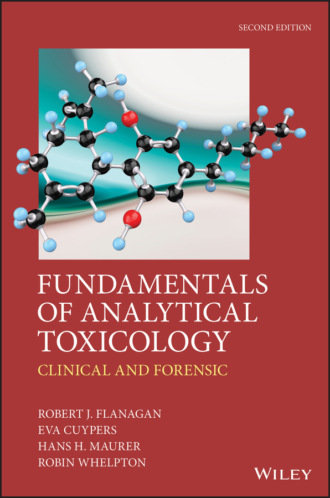
Полная версия
Fundamentals of Analytical Toxicology
[i]Fundamentals of Analytical Toxicology[/i] is an integrated introduction to the analysis of drugs, poisons, and other foreign compounds in biological and related specimens. Assuming only basic knowledge of analytical chemistry, this invaluable guide helps trainee analytical toxicologists understand the principles and practical skills involved in detecting, identifying, and measuring a broad range of compounds in various biological samples. Clear, easy-to-read chapters provide detailed information on topics including sample collection and preparation, spectrophotometric and luminescence techniques, liquid and gas-liquid chromatography, and mass spectrometry including hyphenated techniques. This new edition contains thoroughly revised content that reflects contemporary practices and advances in analytical methods. Expanding the scope of the 1995 World Health Organization (WHO) basic analytical toxicology manual, the text includes coverage of separation science, essential pharmacokinetics, xenobiotic absorption, distribution and metabolism, clinical toxicological and substance misuse testing, therapeutic drug monitoring, trace elements and toxic metals analysis, and importantly the clinical interpretation of analytical results. Written by a prominent team of experienced practitioners, this volume: Focuses on analytical, statistical, and pharmacokinetic principles Describes basic methodology, including colour tests and immunoassay and enzyme-based assays Outlines laboratory operations, such as method validation, quality assessment, staff training, and laboratory accreditation Follows IUPAC nomenclature for chemical names and recommended International Non-proprietary Name (rINN) for drugs and pesticides Includes discussion of 'designer drugs' (novel pharmaceutical substances NPS) [i]Fundamentals of Analytical Toxicology: Clinical and Forensic, 2nd Edition[/i] is an indispensable resource for advanced students and trainee analytical toxicologists across disciplines, such as clinical science, analytical chemistry, forensic science, pathology, applied biology, food safety, and pharmaceutical and pesticide development.

